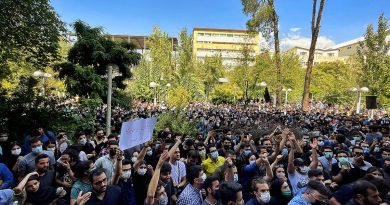FOCUS on: The Powers of the ICC in the Face of Global Conflict
Karissa Kromminga
Staff Writer
The International Criminal Court (ICC) was established by the United Nations on July 17, 1998, with the passage of the Rome Statute. It came as a response to horrific crimes committed during conflicts throughout the twentieth century – namely the World Wars, the Cold War, and the conflicts in Yugoslavia and Rwanda. According to the ICC, its purpose is to “investigate, prosecute and try individuals accused of committing the most serious crimes of concern to the international community as a whole, namely the crime of genocide, crimes against humanity, war crimes and the crime of aggression.” The Rome Statute is ratified by 124 countries across all regions of the world; however, this does not include the United States, Russia, or China.
The ICC has the power to prosecute individuals in the absence of national action, as opposed to the International Court of Justice, which settles disputes between governments, reports BBC. The court only has jurisdiction over crimes committed in the territory of or by a citizen of a state which has ratified the treaty, or when a case is referred by the United Nations Security Council. Its first verdict occurred in March of 2012 against Thomas Lubanga, who was the leader of a militia in the Democratic Republic of Congo and was convicted of war crimes relating to the use of child soldiers.
The most recent actions by the ICC come in the form of applications for arrest warrants for top Israeli and Hamas officials. Chief prosecutor of the ICC, Karim Khan, stated that there was reasonable ground to believe that Israel’s Prime Minister Benjamin Netanyahu and Defense Minister Yoav Gallant, and Hamas leaders Yahiya Sinwar, Mohammed Deif, and Ismail Haniyeh bore responsibility for war crimes committed on and after October 7, BBC says in another article. The accusations against Israel’s ministers include suspected crimes of “starvation of civilians as a method of warfare, murder, intentionally directing attacks against a civilian population, and extermination.” Hamas leaders have been accused of committing crimes including: “extermination, murder, hostage taking, rape and sexual violence, and torture.” The application is still confidential at this time. Netanyahu stated that the ICC’s accusations were an “outrageous assault” on Israel’s right to self-defense, with the U.S. government calling for the court to back down reports Foreign Policy. Despite Israel not being party to the treaty, the ICC can prosecute Israeli officials for crimes committed by IDF soldiers on Palestinian territory because Palestine is party to the treaty.
These applications come over a year after the ICC issued arrest warrants for Russian President Vladimir Putin and Putin’s Commissioner for Children’s Rights, Maria Alekseyevna Lvova-Belova. The ICC stated that, “there are reasonable grounds to believe that each suspect bears responsibility for the war crime of unlawful deportation of population and that of unlawful deportation of population and that of unlawful transfer of population from occupied areas of Ukraine to the Russian Federation, in prejudice of Ukrainian children,” reports Time. Many believe that it is unlikely that Putin will be arrested while he is still in power, because the ICC does not have its own police force and must rely on countries to enforce warrants. The charges mainly act as a way to weaken the global standing of Putin and his allies. Even if Putin were to lose power in Russia, he is still unlikely to be tried because the Russian constitution prohibits the extradition of citizens. This was reinforced on September 3, when Putin made his first visit to an ICC member state, Mongolia, since the warrant was issued reports Politico. Mongolia is supposed to act upon the warrant under international law, however, Russian officials stated they had “no worries” about the visit. Mongolia will likely face prosecution by the ICC over its inaction, which could condemn the violation under a non-compliance procedure. However, there are unlikely to be any serious consequences for Mongolia.
Image courtesy of Getty Images

